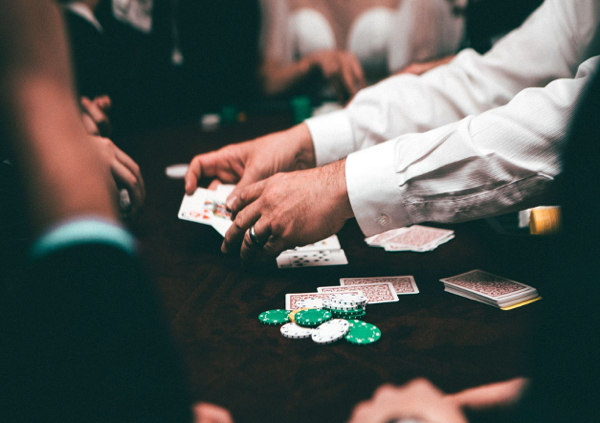 |
RacingBetter News |
| Thursday 8th December 2022 | |
10 Courtesies Every Poker Player Should Do When Playing
Poker is a game that anyone can enjoy, regardless of their race, sex or experience. However, to make the game more enjoyable for all and to ensure fair play, there are a few courtesies that every player should observe when playing poker. This article will explore the 10 essential courtesies every poker player should extend to their opponents.
1. Be respectful of other players.
Respect is a necessary virtue in poker and life. By being respectful to your opponents, you not only make the game more pleasant for everyone involved but also gain their respect. Doing this can lead to better play and a more enjoyable experience for everyone. Showing respect at the poker table includes doing things like not using abusive language, not making fun of other players, and not engaging in any behavior that could be considered unsportsmanlike.
It's important to remember that your opponents are also trying to enjoy the game. Things such as talking incessantly, making annoying noises, and engaging in other similar behavior could be considered disruptive and disrespectful. The other players may ask you to leave the table if you're a nuisance.

2. Be punctual.
No one likes to wait for other players to show up, so punctuality is essential when playing poker, which means arriving on time for your game and being ready to play when the game starts. If you're running late or need to take a break during the game, let the other players know so they can plan accordingly.
3. Follow the rules of the game.
Poker is a game with many rules, and you must familiarize yourself with them before you start playing. Different poker games require you to learn different rules distinct from each poker variant. Learning the game's rules will not only make the game fairer but will also prevent any arguments or confusion from arising during play. Ask the dealer or another player for clarification if you're unsure about a rule.
4. Be mindful of your conduct.
Your conduct at the poker table says much about you as a person and player. By being mindful of your conduct, you can ensure that you're seen as someone who is fun to play with and who can be trusted. This courtesy includes things like not cheating, not distracting other players, and not engaging in any behavior that could be considered unsportsmanlike.
5. Keep your emotions in check.
Poker is a game of strategy and skill, but it's also a game of chance. As such, keeping your emotions in check and not letting them get the better of you means not celebrating too much when you win and not getting too upset when you lose. If you're having trouble controlling your emotions, it's best to take a break from the game until you can calm down.
6. Be a good sport.
No one likes a sore loser, so it's essential to be a good sport when playing poker, which means congratulating your opponents on their wins and taking your losses in stride. It also means not engaging in behavior that could be considered unsportsmanlike, such as throwing your cards or chips in frustration.
7. Be patient.
Poker is a game that requires a lot of patience, which means not rushing your decisions and taking the time to consider all of your options before making a move. It also means being patient with slower players and not pressuring them to make their moves faster.
8. Don't be a bluffing expert.
Bluffing is an integral part of poker, but it's also essential to know when to stop bluffing. If you constantly try to bluff your opponents, they'll eventually catch on and start calling your bluffs. This situation can lead to frustration on both sides and ruin the game for everyone involved. So, don't be afraid to mix things up and only bluff when it's truly warranted.
9. Be considerate of other players' time.
Poker games can sometimes go long, so it's essential to consider other players' time, which means not taking too long to make your decisions and not slowing down the game unnecessarily. If you need more time to think about a hand, let the other players know so they can plan accordingly.
10. Be respectful of the dealer.
The dealer is there to help keep the game moving and ensure everyone is playing fairly. As such, respecting the dealer and following their instructions is essential. This behavior includes things like not trying to cheat, not arguing with them over rulings, and not being disruptive. If you have a problem with how the dealer handles the game, speak to them privately after the game ends.
Conclusion
The basic tenets of poker etiquette are to be polite, respectful, and mindful of the other players at the table. By following these guidelines, you can ensure that everyone has a good time and that the game runs smoothly. Ask another player or the dealer for clarification if you're unsure about what constitutes proper behavior at a poker table. Practice these tips when you play free poker at free online poker sites. A great start is signing up at the world's largest poker online room, GGPoker!







